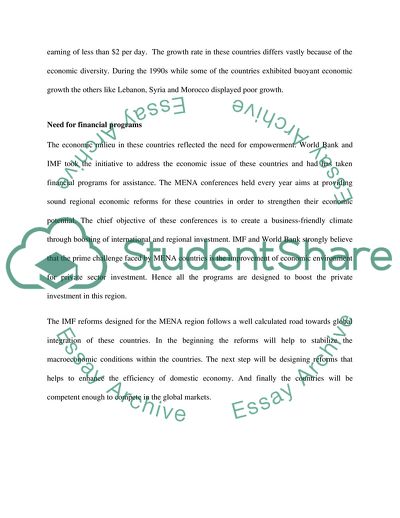Cite this document
(Economic Reforms in MENA Case Study Example | Topics and Well Written Essays - 2000 words, n.d.)
Economic Reforms in MENA Case Study Example | Topics and Well Written Essays - 2000 words. Retrieved from https://studentshare.org/macro-microeconomics/1724108-why-have-countries-in-the-middle-east-needed-to-undertake-imf-wb-programs-and-how-successful-have-these-programs-been
Economic Reforms in MENA Case Study Example | Topics and Well Written Essays - 2000 words. Retrieved from https://studentshare.org/macro-microeconomics/1724108-why-have-countries-in-the-middle-east-needed-to-undertake-imf-wb-programs-and-how-successful-have-these-programs-been
(Economic Reforms in MENA Case Study Example | Topics and Well Written Essays - 2000 Words)
Economic Reforms in MENA Case Study Example | Topics and Well Written Essays - 2000 Words. https://studentshare.org/macro-microeconomics/1724108-why-have-countries-in-the-middle-east-needed-to-undertake-imf-wb-programs-and-how-successful-have-these-programs-been.
Economic Reforms in MENA Case Study Example | Topics and Well Written Essays - 2000 Words. https://studentshare.org/macro-microeconomics/1724108-why-have-countries-in-the-middle-east-needed-to-undertake-imf-wb-programs-and-how-successful-have-these-programs-been.
“Economic Reforms in MENA Case Study Example | Topics and Well Written Essays - 2000 Words”. https://studentshare.org/macro-microeconomics/1724108-why-have-countries-in-the-middle-east-needed-to-undertake-imf-wb-programs-and-how-successful-have-these-programs-been.


